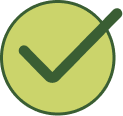Home / Substance Use Disorder / Hallucinogen Use Disorder Treatment
Hallucinogen Addiction Treatment in CO
Drift Behavioral Health in Colorado Springs provides tailored treatments to achieve sobriety from drugs like LSD and ketamine. With our evidence-backed hallucinogen addiction recovery approaches, you can heal safely and wholly.

Hallucinogen Definition
Hallucinogens alter the brain’s natural function, making everyday things seem weird or scary. They make you see, hear, or feel things that aren’t real. Some people call these “trips” or “highs.”
Are Hallucinogens Addictive?
Hallucinogens are habit-forming. Physical symptoms might not be as intense as other addictions, but your mind can crave these drugs, which leads to continued use.

Hallucinogen Addiction Treatment at Drift Behavioral Health
We treat hallucinogen addiction with flexible programs to match where you are in recovery. Treatment is during the day or evening, working around your commitments.

Partial Hospitalization Program
5–6 days a week, around 5 hours per day
This gives you the most support while living at home. You experience group therapy, one-on-one counseling, help with medications, and various new practical skills.

Intensive Outpatient Program
3–5 days a week, 3–4 hours per day
If you’re getting better or need to balance treatment with work and family, this program is a great solution. You still get focused care but with more freedom.

Telehealth Options
Attend all levels of care online via secure Zoom sessions
Get the same quality care as in-person programs from home. This includes therapy, medication help, and case management support.
What You Can Expect in Treatment
Optional 12-Step Groups: Join recovery meetings if they help you feel supported and connected to others in recovery.
Proven Therapies: Work with therapists who use methods that work, like CBT and DBT, in both group and one-on-one sessions.
Medication Support: Get FDA-approved medications like Suboxone, Sublocade, Vivitrol, or naltrexone to ease withdrawal symptoms.
Trauma Treatment: Work with qualified professionals who understand trauma and create a comfortable environment to explore your past.
Dual Diagnosis Care: We treat addiction and mental health problems together because they often go hand in hand.
Hallucinogenic Drug Major Categories
There are two main types of hallucinogens, each requiring a nuanced treatment approach.
Classic Hallucinogens
These psychedelics disrupt the brain’s natural serotonin production, causing intense “trips.” Some common types include:
- Lysergic acid diethylamide (LSD): Strong lab-made drug that can last 12 hours
- Magic Mushrooms (Psilocybin): Natural mushrooms that cause hallucinations
- Dimethyltryptamine (DMT): Found in plants; used to make ayahuasca
- Mescaline: Made from the peyote cactus
- Ayahuasca: Plant mixture often used in shamanistic ceremonies
Dissociative Hallucinogens
Dissociations caused by these drugs make you feel disconnected from your body and surroundings. This includes altered sight and hearing. Typical types are:
- Phencyclidine (PCP): Originally a hospital medicine that became a street drug
- Ketamine: Used to treat depression, but people abuse it recreationally
- Dextromethorphan (DXM): Found in cough medicine, dangerous in high doses
- Salvia: Created from a plant and causes short but intense trips
Effects of Hallucinogens
Each person’s experience of either type of hallucinogen is different. However, there are common issues with these drugs:
Short-Term Effects
- Time distortion
- Nausea and vomiting
- Extreme mood swings
- Sleep issues and restlessness
- Hearing colors or seeing sounds
- Racing heart and high blood pressure
- Sudden intense fear or anxiety attacks
- Seeing people, objects, or patterns that don’t exist
Long-Term Effects
- Depression and anxiety
- Getting hurt in accidents
- Relationship and job problems
- Flashbacks months or years later
- Persistent mental health problems
- Increased risk of suicide or self-harm
- Heart and brain damage from some drugs
- Memory problems and difficulty keeping a train of thought
What Is Hallucinogenic Disorder?
While it sounds similar, a hallucinogenic disorder and hallucinogen addiction aren’t the same thing. They can, however, overlap.
Hallucinogenic Disorder
Using official DSM-5 guidelines, doctors diagnose hallucinogenic disorders when the use of these drugs causes harm to your mental and physical well-being. It includes issues like:
- Hallucinogen use disorder (use despite harm)
- Hallucinogen intoxication (instant effects of a high)
- Hallucinogen persisting perception disorder (visual disturbances that aren’t there)
Hallucinogen Addiction
A hallucinogen use disorder refers to the inability to quit compulsive use of these substances, despite any damage they cause to your life. Signs of use include:
- Craving the drug all the time
- Needing more to get high
- Can’t control how much you use
Signs of Hallucinogen Abuse and Dependence
Core identifiers that someone is abusing hallucinogens include:
- Spending most of the time getting drugs, using them, or recovering
- Keep using even when it causes fights with family or friends
- Using more often or taking bigger doses than planned
- Needing more of the drug to feel the same high
- Wanting to use even when trying to stop
- Not doing well at work, school, or home
- Money problems from buying drugs
- Quit doing once-enjoyed hobbies
- Feeling bad when you don’t use
- Using in dangerous situations
- Lying about drug use
Continued Support and Relapse Prevention in Colorado
At Drift, we’re here to support you in staying grounded and connected as you work on recovery beyond our programs. Your personalized aftercare plan includes:
- Help finding the right therapist or psychiatrist for continued support
- An active alumni network with mentorship and events
- Guidance on choosing a sober living environment
- Referrals to local sober-friendly resources
- Skills focused on preventing relapse
- Access to support groups
Get Help for Hallucinogen Abuse
If hallucinogens are controlling your life or someone you love, our team can help. We’ll work with you to create a treatment plan that fits your life and gets you back on track. For specialized, compassionate care that builds your path to sobriety, reach out today.
FAQs
How long does treatment take?
Most people stay in our programs for 1–6 months. This is customized to your needs.
What if I use other drugs too?
We provide simultaneous care, treating any other substance use disorders alongside a hallucinogen addiction.
Does insurance pay for this?
We work with out-of-network providers. Our team can help you verify your insurance before starting any treatment.
What if I relapse?
Relapse is not uncommon during addiction recovery. It’s not a sign of failure; we can help adjust your treatment to keep you on the road to sobriety.
Latest Resources
Tramadol is often prescribed for pain, but the way it works is more complicated than most people expect. Research shows the benefits are modest, while the risks of side effects
Every October 10th, World Mental Health Day reminds us to care for our emotional well-being. Mental health awareness keeps growing, yet millions of people still face stigma that stops them
If you’re thinking about quitting smoking or just curious about what’s going on inside your body, understanding how long nicotine lingers is important. Reasons can vary, whether you need to
Contact Us
Contact Us (Home)
"*" indicates required fields


